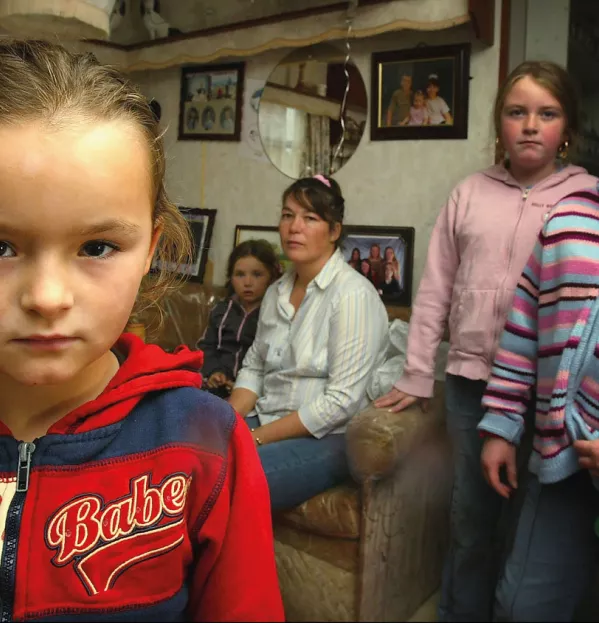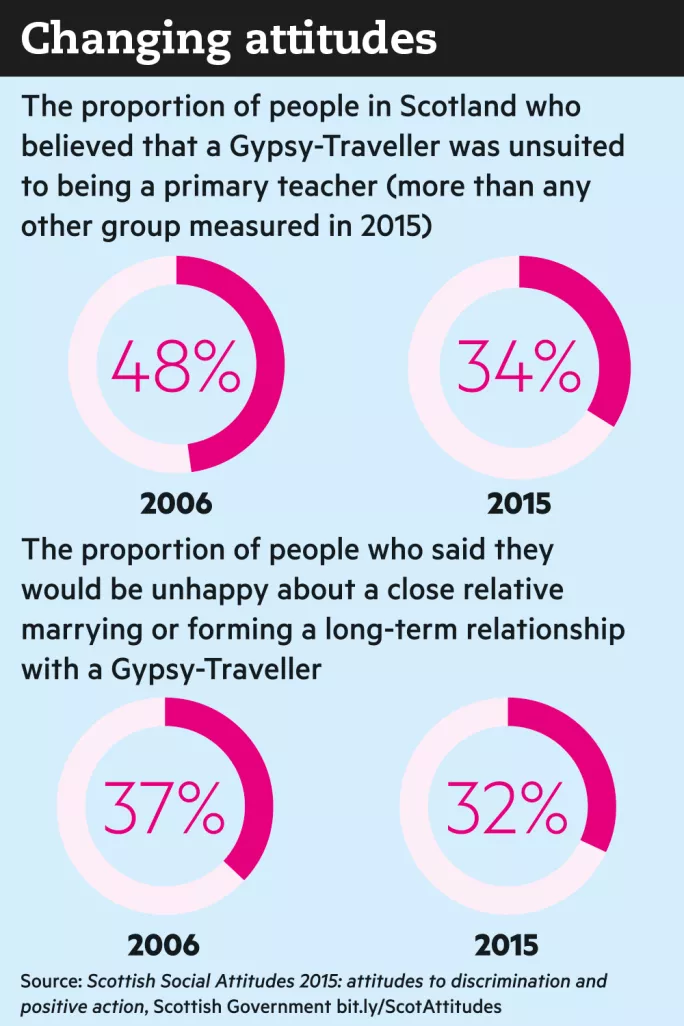When schools are ‘unsafe spaces’ for Traveller pupils

Teachers may be “complicit” in the racist bullying and harassment of Scottish pupils from Gypsy and Traveller backgrounds, new University of Edinburgh research suggests.
Many such pupils fear for their safety in school and sometimes drop out as a result, owing to a phenomenon the study describes as “self-segregation”.
Dr Geetha Marcus found “growing evidence” from existing research that Gypsy-Traveller pupils suffered “persistently high levels of bullying in schools”.
She also carried out her own interviews with Scottish Gypsy-Traveller girls and women, and found that “most experienced racist name-calling, racist bullying and harassment, physical aggression and social exclusion by peers because of their ethnicity”.

Blamed and excluded
But the girls also reported “lack of support from school staff, including senior management, when they attempted to report these instances of racial aggression”. Some said that they were blamed for incidents, received detention or were excluded. One headteacher reportedly said that “exclusion was too good” as it would seem like a holiday for a Gypsy-Traveller pupil.
Those findings echoed previous studies suggesting that school staff might not always support Gypsy-Traveller pupils when they complained about being racially bullied, Dr Marcus said.
Many girls have felt unsafe, prompting their parents to move them on to different schools, or to withdraw them from the system altogether. Dr Marcus describes this as “a form of protective self-segregation”.
Some parents have enrolled their daughters in a school set up by one local authority for Gypsy, Roma and Traveller pupils. This is run by teachers and partly funded by a youth charity, but only operates for two days a week.
‘An uncritical habit of mind can justify inequity by accepting the existing order of things’
Unhelpful attitudes among teachers could have different explanations, Dr Marcus speculated: staff could even become “consciously complicit” in acts of bullying and inadvertently encourage schools to be “unsafe spaces of learning”.
This was “either because staff are prejudiced themselves [or] do not have the time or have not the training to identify racist bullying, tackle the problem and support all parties concerned”, she added.
Staff might also have “an uncritical habit of mind (including perceptions, attitudes, assumptions and beliefs) that justifies inequity by accepting the existing order of things as given”.
The Scottish government has in recent years published a number of supportive documents on Gypsy-Travellers - an official umbrella term covering various groups who consider a travelling lifestyle part of their ethnic identity. The government has described such groups as “a particularly discriminated against and marginalised group”.
The 2011 census was the first to include an option for people to describe themselves as “White Gypsy/Traveller”; some 4,500 chose to do so, although it is thought that the actual figure is far higher.
Positive steps
Dr Marcus’ as-yet-unpublished study, Breaking the Silence: the intersecting invisible experiences of Gypsy/Traveller girls in Scotland, does not look at Roma people from Eastern Europe - a number of whom have arrived in Scotland in recent years.
They have shared many of the same negative experiences of school as Scottish Gypsy-Travellers, but more positive stories have started to emerge in recent years.
In Glasgow, for example, about three-quarters of pupils at Annette Street Primary School are Roma. Headteacher Shirley Taylor told TESS that her school had a zero-tolerance approach to bullying and a well-established programme of restorative practice that helped children to deal with conflict while also making it clear that children’s cultural and linguistic backgrounds were valued.
“Our staff are dedicated professionals who have chosen to work in a school such as ours,” Ms Taylor said. “They are knowledgeable and understanding of our Roma families, of the challenges they face and of the impact these challenges have on the children’s ability to learn.”
There was no question of teachers being complicit in maltreatment of children, she added, as every staff member, whatever their personal views on issues such as migration, “works tirelessly to provide the children…with the best experience of school possible and to ensure that meeting the needs of the children is their priority”.
You need a Tes subscription to read this article
Subscribe now to read this article and get other subscriber-only content:
- Unlimited access to all Tes magazine content
- Exclusive subscriber-only stories
- Award-winning email newsletters
Already a subscriber? Log in
You need a subscription to read this article
Subscribe now to read this article and get other subscriber-only content, including:
- Unlimited access to all Tes magazine content
- Exclusive subscriber-only stories
- Award-winning email newsletters